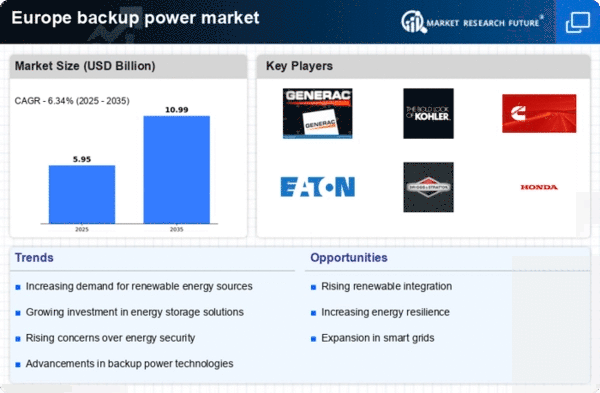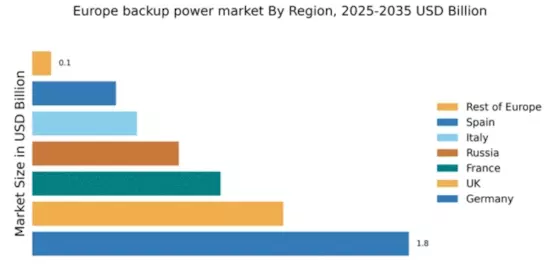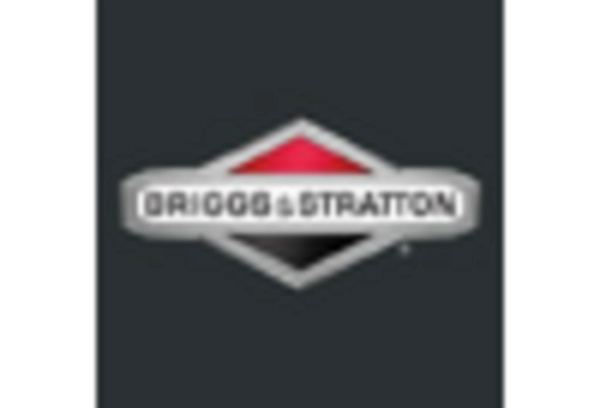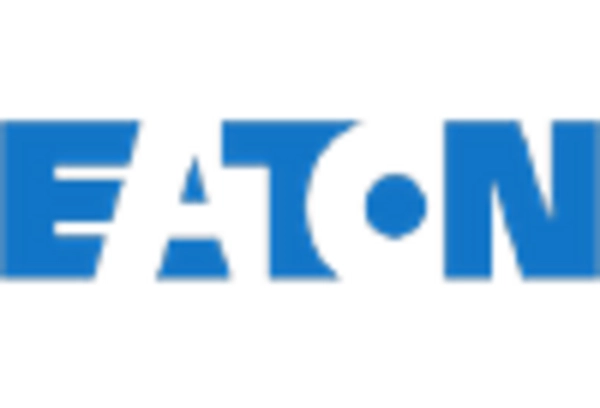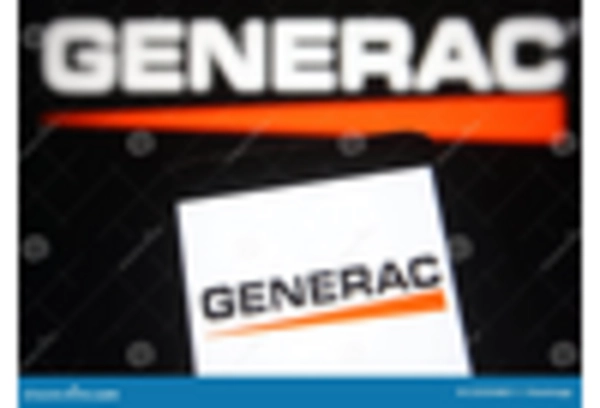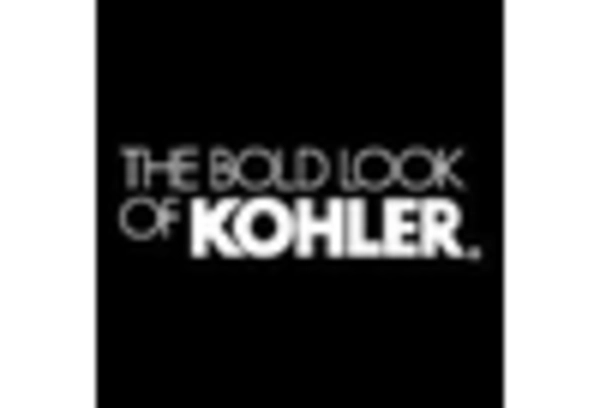Rising Energy Demand
The increasing energy demand across Europe is a pivotal driver for the backup power market. As urbanization and industrialization continue to expand, the need for reliable energy sources becomes paramount. In 2025, energy consumption in Europe is projected to rise by approximately 1.5% annually, necessitating robust backup solutions to ensure uninterrupted power supply. This trend is particularly evident in sectors such as manufacturing and data centers, where power outages can lead to significant financial losses. Consequently, the backup power market is witnessing heightened investments in generators and battery storage systems to meet this growing demand. Furthermore, the shift towards electric vehicles is expected to further strain the existing power infrastructure, thereby amplifying the need for backup power solutions to maintain operational continuity.
Increased Frequency of Power Outages
The frequency of power outages in Europe has been on the rise, driven by aging infrastructure and extreme weather events. Reports indicate that the average number of outages per year has increased by 20% over the last decade, prompting businesses and households to seek reliable backup power solutions. This trend significantly impacts the backup power market, as consumers become more aware of the risks associated with power interruptions. In response, many organizations are investing in backup generators and uninterruptible power supplies (UPS) to mitigate the effects of outages. The growing concern over energy security and the reliability of the grid further fuels this demand, leading to a more competitive landscape within the backup power market as companies strive to offer innovative and efficient solutions.
Growing Awareness of Energy Resilience
There is a growing awareness of the importance of energy resilience among consumers and businesses in Europe, which serves as a significant driver for the backup power market. As individuals and organizations recognize the potential risks associated with energy supply disruptions, they are increasingly prioritizing investments in backup power solutions. Surveys indicate that over 60% of businesses now consider energy resilience a critical component of their operational strategy. This shift in mindset is prompting a surge in demand for backup power systems, including generators and battery storage solutions. The backup power market is responding to this trend by offering tailored solutions that address specific needs, such as scalability and environmental impact. As awareness continues to grow, the market is expected to expand, driven by a collective commitment to ensuring reliable energy access.
Technological Innovations in Backup Systems
Technological innovations are reshaping the backup power market in Europe, leading to more efficient and reliable solutions. Advances in battery technology, such as lithium-ion and solid-state batteries, have significantly improved energy storage capabilities, allowing for longer backup durations and faster charging times. In 2025, the market for energy storage systems is expected to grow by 30%, driven by these technological advancements. Additionally, smart grid technologies are enhancing the integration of backup systems with existing energy infrastructure, enabling real-time monitoring and management of power resources. This evolution not only increases the reliability of backup power solutions but also reduces operational costs for users. As technology continues to evolve, the backup power market is likely to witness further innovations that enhance performance and sustainability.
Government Incentives for Energy Independence
European governments are increasingly offering incentives to promote energy independence, which is a crucial driver for the backup power market. Initiatives such as tax breaks, grants, and subsidies for renewable energy installations encourage businesses and homeowners to invest in backup power systems. For instance, the European Union has set ambitious targets to reduce greenhouse gas emissions by 55% by 2030, which indirectly supports the backup power market by fostering the adoption of energy storage solutions. These incentives not only enhance the appeal of backup power systems but also align with broader sustainability goals. As a result, the market is likely to see a surge in demand for hybrid systems that combine renewable energy sources with traditional backup solutions, thereby creating a more resilient energy landscape.


